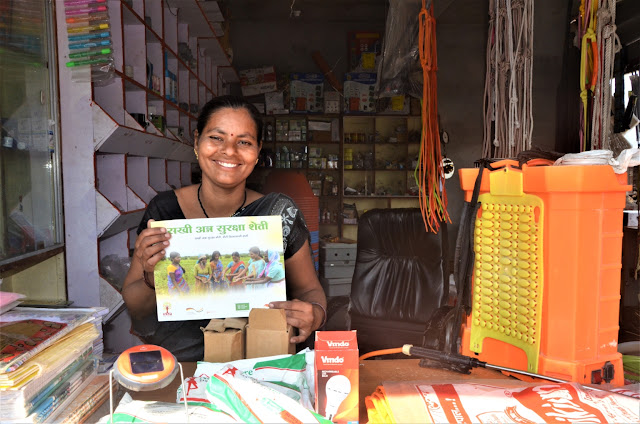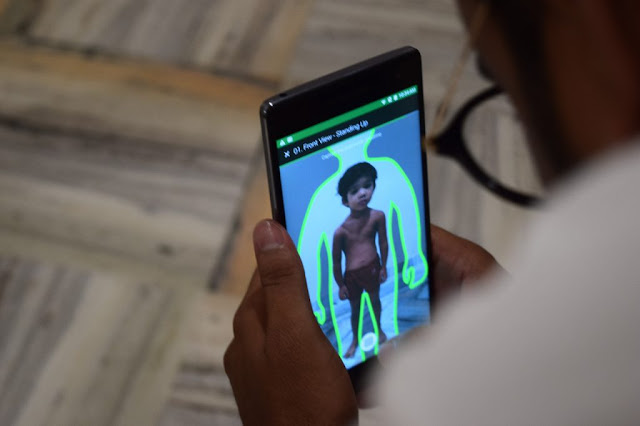According to the Multi-dimensional Poverty Index around 55% of Indians are poor, with the majority of them currently living on less than $1.25 a day. On the other hand, India's low ranking (130 out of 188 countries) in the Human Development Index once again indicates that the situation is worrying (particularly in villages); and huge efforts are needed to improve the lives of millions of people in the country. This number is above 70% in most of our target states, such as Jharkhand, Bihar or Madhya Pradesh
Welthungerhilfe (WHH), a non-profit has been supporting rural development projects in India and Bangladesh through local partner organizations who work with the most vulnerable and marginalised people.
What is Welthungerhilfe?,
Welthungerhilfe (World Hunger Relief: in English) was founded in 1962 as the National Committee of the Freedom from Hunger Campaign set up by the United Nations Food and Agriculture Organisation. Non-profit making, non-denominational and politically independent, it is run by a board of honorary members under the patronage of the Federal Republic of Germany. The South-Asia regional office with its headquarters in India serves the countries of India, Nepal, Sri Lanka and Bangladesh.
Welthungerhilfe, South Asia, supports initiatives that help disadvantaged groups to assume their rights as citizens in order to benefit from economic growth and overall positive development framework. WHH also extends its services during emergency situations such as natural disasters, or civil wars.
In
2021 alone, Welthungerhilfe supported approximately 16.6 million people in 36
countries with 526 overseas projects. In concrete terms, this means that people
were able to survive, harvest more, eat better, get clean drinking water and
toilets locally, fall ill less often, secure an income or surplus or begin an
education. For the children, Welthungerhilfe support means a chance for healthy
physical and mental development.
Welthungerhilfe’s ‘Nutrition Smart Village’,
Welthungerhilfe’s ‘Nutrition Smart Village’ (NSV) concept is based on the multi sector approach to primarily address the underlying causes of malnutrition and create awareness about the rights and entitlements of the community. The interventions addressing the underlying causes are the ‘nutrition sensitive’ interventions. The underlying causes are the effect of the social and economic milieu of the country. These are referred to as the basic causes and include quality of human resource, the way economic and social resources are used and the political will of the government. The basic causes can be addressed by ‘building an enabling environment’. Sustainable reduction of long-term chronic malnutrition can be made possible by addressing the majorly the underlying and basic causes.
WeltHungerhilfe's Nutrition Smart Village living with a vision of a world, where all people have the opportunity to live a self-determined life in dignity and justice, free from hunger and poverty. There is nothing wrong to say, it is an informed village that understands nutrition in its practical terms and takes appropriate steps to address them.
WHH believes in women empowerment,
It is a strong Self-Help Group empowers not just one, but all women in it. Here women are full of leadership potential and make all the decisions themselves like: what to grow, what to eat and how to modify farming practices for a healthy future. From learning ways to make organic vermicompost to reserving a patch of land for organic farming, these women are spreading a movement in their own regions for a healthy future.
“Why are we not recognized as farmers? Why can't we be the master of our land? That's why we never got the opportunity to express what we wanted. This project has instilled the confidence to think about the health of our families. Focus on dietary diversification by contributing a portion of land from our cultivation space to kitchen gardening. Now we bring healthy food from our garden to our plate."- women of Welthungerhilfe,India said.
It's Nutrition Smart CommuNITY project started under EU in India and Welthungerhilfe co-funded project on building domestic resource mobilization capacities of Indian civil society organisations, where women held various training & mentorship sessions on new fundraising techniques, in addition to building #ShareOn.
A digital initiative of WHH to fight hunger,
Welthungerhilfe has developed an application using artificial intelligence (AI) called the ‘Child Growth Monitor’ (CGM) application.
That helps to detect undernutrition among children under the age group of five years. This innovative mobile based ‘Child Growth Monitor’ (CGM) application records 3D images of children to calculate their body mass with AI, and calculates height, weight and down to the millimetre.
The application works in real time and functions offline. The Child Growth Monitor app is based on an open-source component which supports data collection and diagnosis and can run in any cloud-environment or data-center. Data collected and diagnosed can then be found on Welthungerhilfe’s Git-Hub repositories.
The CGM app is currently in the learning stage and is being piloted in parts of Maharashtra, Madhya Pradesh and Rajasthan. Till date, 60 Anganwadi workers have been trained on how to use the application and 38,929 children have been scanned. The community members, especially the parents are educated on their child’s growth and on the importance of the application.
Projects run by Welthungerhilfe,
In close collaboration with local communities and partner organisations, Welthungerhilfe has been currently working in the following four priority sectors in India: Rural Livelihoods and Sustainable Agriculture, WASH and Water Security, Governance and Peace and Natural Resource Management and Climate Resilience.
WHH's NSV concept demonstrates interlinkages between agriculture, natural resource management, WASH, education and livelihoods with nutrition. It also focuses on the Right to Food and empowers the community towards accessing entitlements and reducing dependency on markets.
Welthungerhilfe-India, also running a project called #Nutrition Smart CommuNITY project across Aurangabad (Maharashtra) for the past 4 years, whose aim is to secure better living conditions for the disadvantaged groups through:
sustainable resource management,
promotion of civil society institutions,
access to government development programmes (entitlements),
and through developing the capacities and abilities of the target groups in line with the principle of help for self-help approach.
Apart from that, on the occasion of World Human Rights Day they also started a campaign called #BinPaniSabSoon(which means there is nothing without water). They believe that water is a basic human right but it is still not reachable for many. Many people in our country face extreme water scarcity and it is the duty of all of us to save water so that it can be available to all now and in future.
Welthungerhilfe India has demonstrated a wide variety of nutrition gardens using agroecological approaches that transfer biodiversity on the soil to diet diversity on the plate. The gardens are designed by local communities to provide healthy food throughout the year, keeping in mind locally available natural and human resources.
Today with a vision to have a world without hunger and poverty, Welthungerhilfe has been implementing several initiatives in rural areas of India and Bangladesh.







.jpg)
.png)
.png)



0 Comments